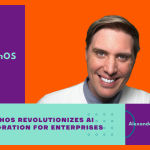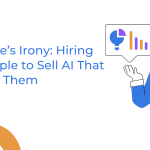Quick Take:
AI’s role as a patient, personalized tutor sparks hope for revolutionizing education but raises concerns about long-term impacts on learning, social skills, and critical thinking.
The Promise of Personalized AI Education
A 5-year-old’s 45-minute interaction with ChatGPT showcased AI’s potential as an infinitely patient, adaptable tutor. This moment of curiosity exemplifies how AI could transform education, making learning accessible, engaging, and tailored to individual needs. Enthusiasts liken this to the concept of the Young Lady’s Illustrated Primer from Neal Stephenson’s The Diamond Age, where personalized education revolutionized societal norms.
Platforms like Khan Academy are already integrating AI to create personalized learning experiences, signaling a future where high-quality, individualized education is not only possible but commonplace.
Balancing Benefits and Risks
Despite its promise, the integration of AI in education is polarizing. Advocates highlight AI’s capacity to democratize knowledge and provide consistent, personalized support unavailable through traditional means. Critics, however, worry about potential overreliance on AI, the erosion of social skills, and the susceptibility of AI systems to bias or misuse.
Key concerns include:
• Over-reliance on AI: Could children raised by AI tutors struggle with critical thinking or creativity?
• Social skill development: Some argue that predictable, patient AI interactions fail to prepare children for the complexity of human relationships.
• Bias in AI systems: As one user noted, the risk of corporations influencing AI content could lead to unintended indoctrination or misinformation.
Studies reveal that while AI can simulate understanding, it lacks the emotional depth and nuanced feedback provided by human educators and peers.
A New Educational Paradigm or a Double-Edged Sword?
The discussion emphasizes that while AI has the potential to be a transformative educational tool, its implementation must be carefully managed. Some suggest integrating AI alongside traditional education to ensure children still develop interpersonal skills and independent thought.
Proposals for mitigating risks include:
• Developing open-source AI educational platforms to avoid corporate manipulation.
• Enforcing strict oversight to ensure unbiased and accurate information.
• Using AI as a supplementary tool rather than a replacement for human interaction.
As one commenter eloquently put it, “Learning is inherently social, and neat AI tools can only amplify education when paired with parental involvement and traditional methods.”
The Road Ahead
As AI technology advances, its role in education will undoubtedly expand. The challenge lies in leveraging its strengths—accessibility, patience, and adaptability—while safeguarding against over-dependence and ethical concerns. The future of AI education will depend on society’s ability to strike a balance between innovation and human connection, ensuring that AI enhances, rather than replaces, the essence of learning.


